
What Is Biotin?
Biotin, or vitamin B7 is an essential vitamin which aids the development of hair, skin and nails, as well as helping your body produce energy. When pregnant, biotin is also crucial to the development of the embryo, but too much can be dangerous. Find out how biotin works and whether supplements are necessary, here.
Human beings (and most beings) need a massive array of different nutrients, minerals, vitamins, proteins and other compounds in order to live a healthy life. Fortunately, for many of us, we can get these through a healthy, balanced diet.
There are certain vitamins, such as biotin, which we only need in tiny amounts. But just because the required amounts are small doesn’t mean they're unimportant. Commonly spoken about regarding hair and skin health, biotin is an essential vitamin found in many foods and available as a supplement.
Read on to discover more about biotin.
What is Biotin?
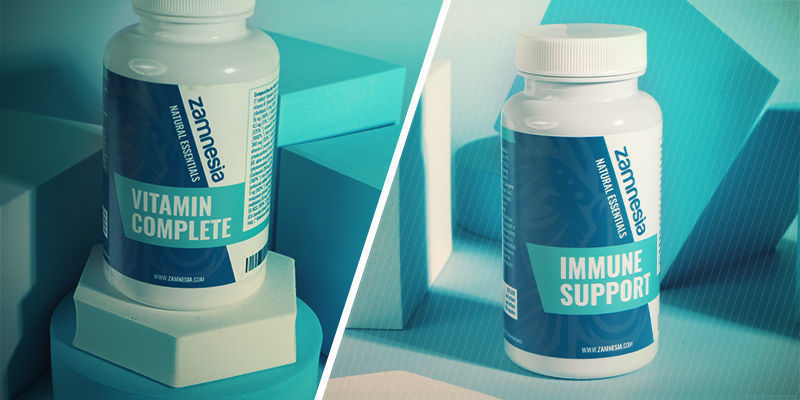
Biotin, once known as vitamin H, now vitamin B7, is a compound which is thought to have an impact on the development of hair, nails and skin. Moreover, during pregnancy, biotin is thought to aid the development of the embryo, making it an essential nutrient for those who are pregnant.
A varied, healthy diet should provide enough vitamin B7 in most cases. That being said, taking extra biotin can be helpful as an extra source. Either way, biotin must be consumed. It’s classed as an “essential vitamin”. These are vitamins that cannot be produced in the body but must be consumed—usually in food.
Biotin vs Collagen
Collagen, another compound related to hair, skin and nail health—making up around 90% of them—is different in nature to biotin. Whereas biotin is an essential vitamin, collagen is a protein which can be produced by the body as needed.
Though they can affect the same parts of the body, collagen and biotin play different roles. Given that, biotin will not help with a collagen deficiency, nor will collagen help with a biotin deficiency. There are distinct compounds with distinct roles.
Where is Biotin Found?
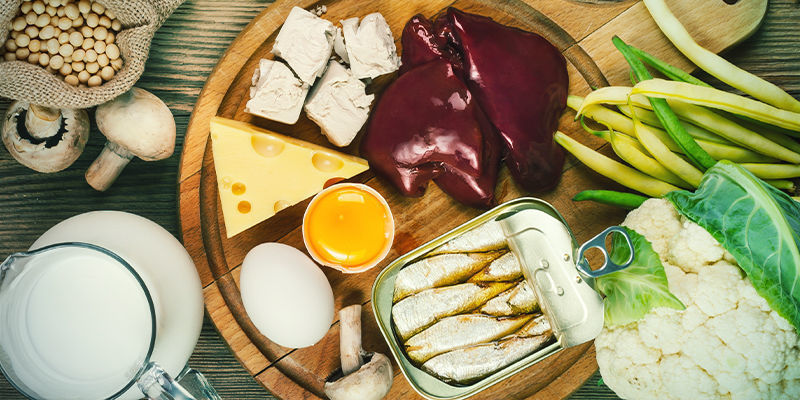
Biotin occurs throughout nature and is in plentiful supply in many common foods. Therefore, having an abundant biotin intake shouldn’t be difficult so long as you can eat a varied diet.
Some natural sources of biotin are:
- Egg yolk
- Dairy
- Fish
- Fruits
- Meat
- Nuts
- Seeds
- Vegetables
- Whole grains
- Yeast
So, you can see biotin isn’t in short supply. And neither is it limited to certain food types, which means those with more limited diets shouldn’t struggle to find a source of biotin which is easy for them to consume.
How Biotin Works in the Body
Biotin, being an essential mineral, helps to maintain overall health. Specifically, though, it affects hair, nail and skin health. As mentioned, it also affects the development of foetuses in the womb. Here we look into how biotin works.
Hair, Skin and Nails
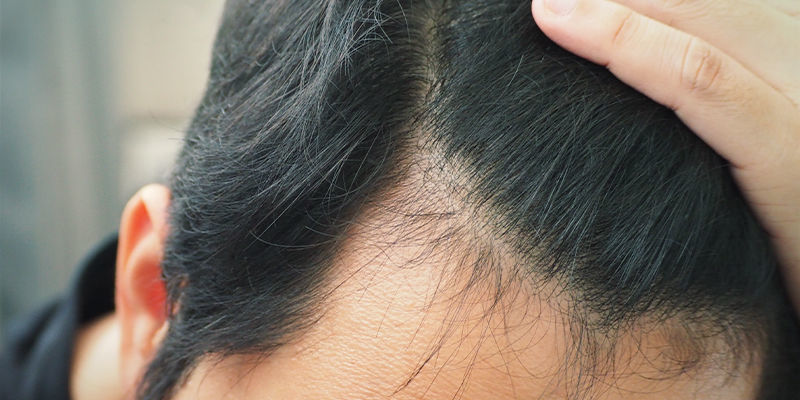
Biotin helps your body produce keratin, which is essential for healthy hair, skin and nail production. With biotin, your body will struggle to do this, leading to some bad effects. Biotin deficiency is thought to be a potential cause of hair loss and skin rash. Therefore, some will recommend taking extra biotin in order to treat these ailments.
But before you jump to self-medicate with extra biotin, there are some things to consider.
Biotin deficiencies are rare. As you can see above, many foods contain biotin, and so for someone to have a biotin deficiency, they must have a very limited diet. Moreover, though a biotin deficiency may cause rashes and hair loss, it is by no means the only explanation nor the most likely.
So the reality is that, even if extra biotin might benefit a fraction of cases, few are likely to think that a little extra biotin solves their problems. That being said, biotin is safe to take, so trying it out is unlikely to do any harm—and may help.
Foetus Development
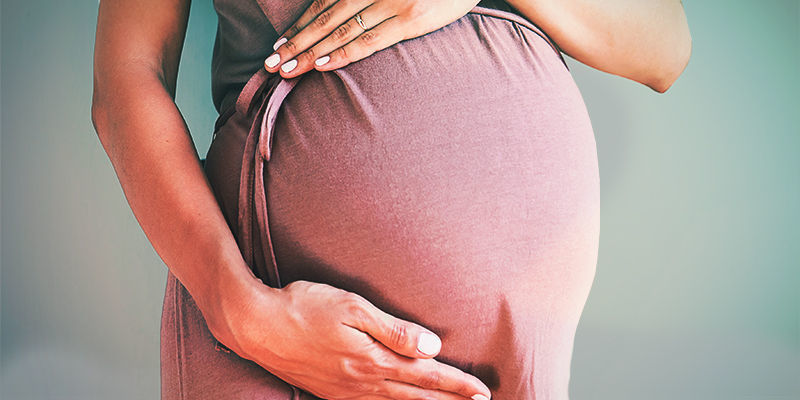
When pregnant, it is possible to become biotin deficient, which can harm the unborn child's development. In these cases, supplementary biotin may be helpful. While biotin deficiencies are normally near-impossible, they are more common, if only mild, during pregnancies.
Biotin (and many other compounds) is crucial for foetal development, especially in the earlier stages. Though often overlooked, murine studies indicate that biotin deficiency during gestation can increase the likelihood of conditions such as cleft palate, micrognathia, microglossia, and fore- and hind-limb shortening (Mock, 2014).
That being said, always consult a professional when supplementing while pregnant. Biotin deficiency can harm foetuses, but so can too much biotin. Prenatal supplements are available which contain the necessary amounts of biotin and other vitamins, without posing a risk. But if in doubt, seek help.
Are There any Side Effects from Biotin?
The recommended daily allowance for biotin is 30 micrograms—a very small amount indeed. But just because you only need a little doesn’t mean it’s not important.
It’s unclear whether there are side effects to taking too much biotin – except in pregnancy, where it can be dangerous. However, for most people, enough biotin is readily available in their diet and needn’t be added too.
Are Biotin Supplements Safe?
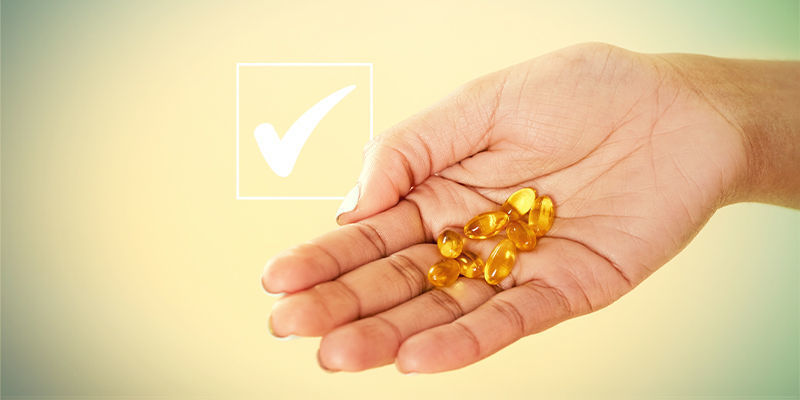
So long as biotin supplements are what they say they are, then they should be safe. Therefore, trying them out shouldn’t prove problematic for most people, even if it doesn’t solve their problems.
As mentioned, most people should get plenty of vitamin B7 in their normal diets. The main group of people who might consider taking extra biotin are those who are pregnant, in which case a biotin deficiency is a possibility with consequences. However, those seeking to do this should do so carefully, as taking too many biotin supplements might prove dangerous for the unborn child.
- Mock, & Donald M. (2014/12/01). Adequate Intake of Biotin in Pregnancy: Why Bother? - https://academic.oup.com
-
 7 min
15 February, 2022
What Is The Endocannabinoid System?
The endocannabinoid system is a fascinating network of channels and receptors that spans the length and breadth of the human body. Involved in everything from cognition and learning to appetite and...
7 min
15 February, 2022
What Is The Endocannabinoid System?
The endocannabinoid system is a fascinating network of channels and receptors that spans the length and breadth of the human body. Involved in everything from cognition and learning to appetite and...
-
 5 min
25 July, 2019
The Best Alternatives To Coffee: Natural Ways To Boost Energy
Although it may be hard to believe, not everybody is a fan of coffee. In case you happen to be one of those people, here is a list of perfect alternatives to the famous caffeinated beverage. Some...
5 min
25 July, 2019
The Best Alternatives To Coffee: Natural Ways To Boost Energy
Although it may be hard to believe, not everybody is a fan of coffee. In case you happen to be one of those people, here is a list of perfect alternatives to the famous caffeinated beverage. Some...
-
 1 min
6 November, 2017
Best Incense For Relaxation And Sleep
Here at Zamnesia, we bring you all sorts of herbs. Herbal incense is a safe and cost-effective way to unwind. Discover our best varieties of incense for easing the mind, body and soul.
1 min
6 November, 2017
Best Incense For Relaxation And Sleep
Here at Zamnesia, we bring you all sorts of herbs. Herbal incense is a safe and cost-effective way to unwind. Discover our best varieties of incense for easing the mind, body and soul.




 United States
United States








